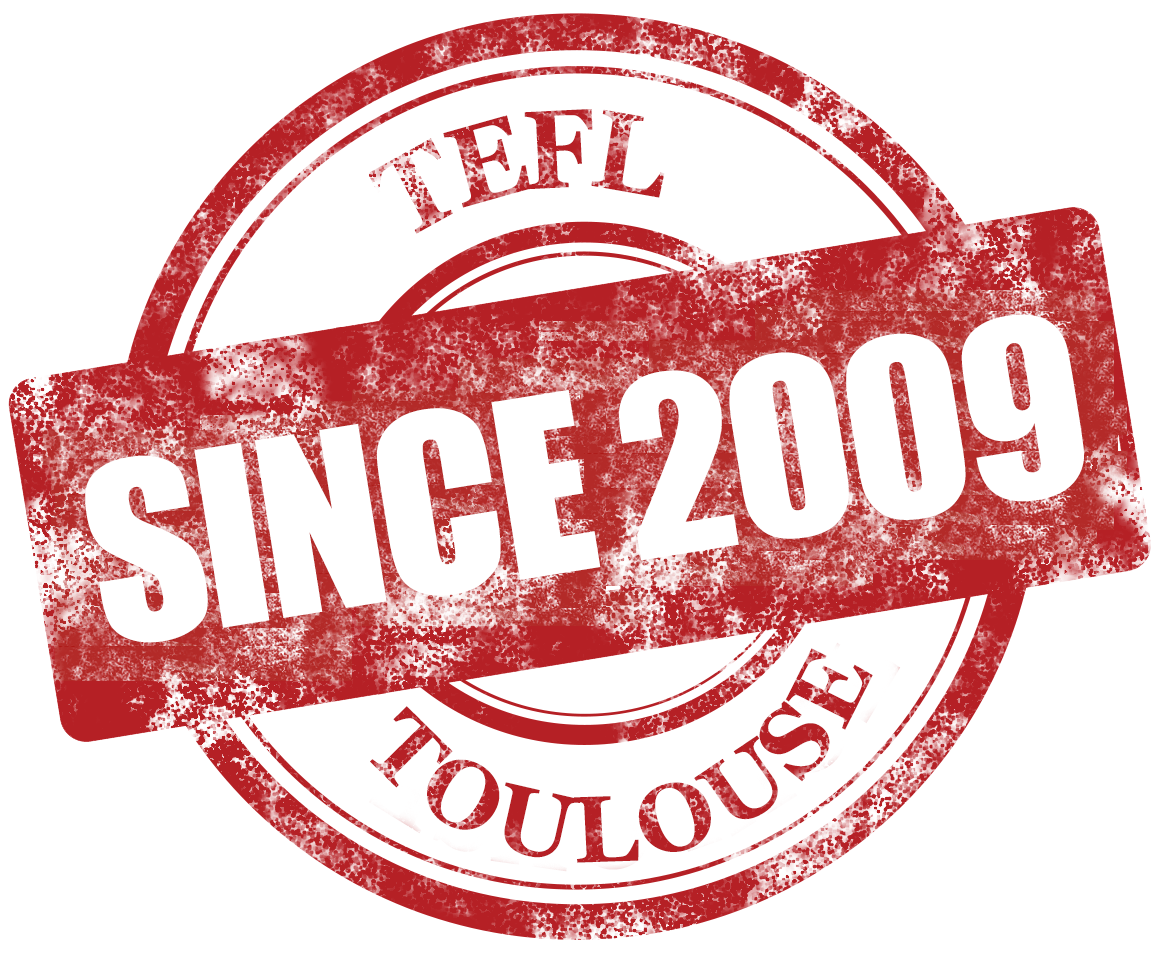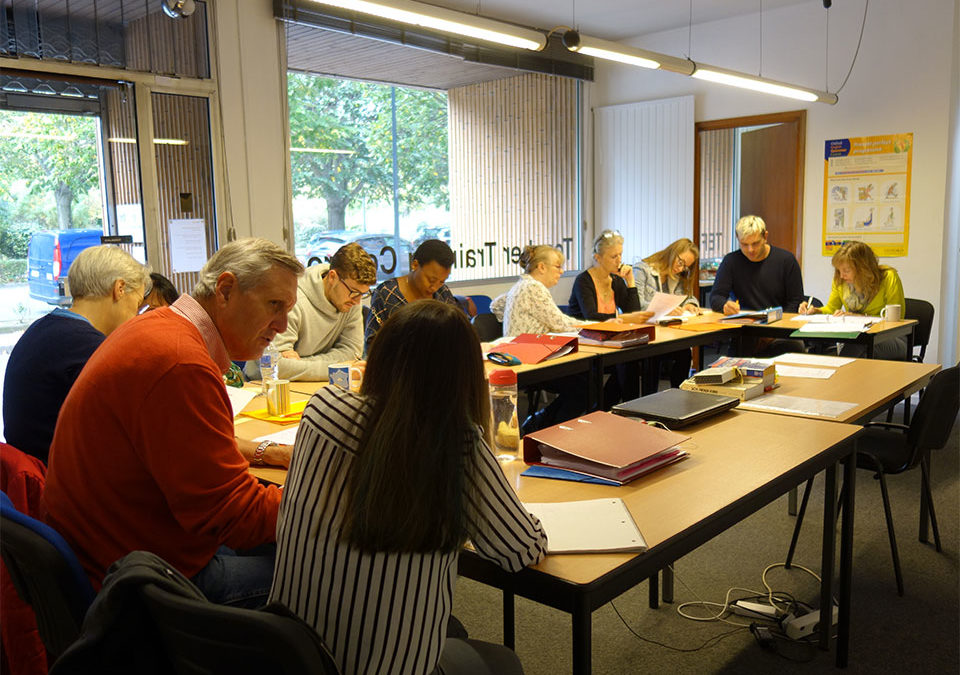Requirements for teaching English in France
Teaching English in France can be daunting if you don’t know where to start – as was my case as an Australian – and it’s impossible to exaggerate the benefits of the TEFL course, not only in the teaching techniques I learnt, but in all the practical advice they provide you when setting off in the big, wide world. Not to mention the friends you’ll make, off whom you can bounce ideas and queries. TEFL Toulouse is certainly seen as the reference TEFL course in the south of France.
Getting set up as an English teacher in France
The very first thing I did after qualifying at TEFL Toulouse was join local EFL Facebook groups, which serve as an endless source of practical and employment information. I’ve picked up quite a bit of work during my time from these groups.
Otherwise, the first step you need to take as an English teacher in France is to register as an AE (auto-entrepreneur/micro-entrepreneur, the equivalent of a self-employed sole trader) at https://www.autoentrepreneur.urssaf.fr/portail/accueil.html. The website is obviously in French and it might be an idea to get a French-speaking friend to help you, but the registration process is quite simple. You need to provide ID documents, visa/residence card, social security number (if applicable) and proof of address, and I received mine within about a month.
Finding a job in France – as an Australian!
After getting TEFL certified with TEFL Toulouse, the first place I found a job, like a lot of new trainers, was with a training centre (centre de formation). They took me on as a freelancer (“autoentrepreneur”) to start off, and offered me a permanent contract after a period of about 3 months. It is general practice for most training centres in France to give teachers a kind of trial period. The going rate with most of these language schools is about 25 euros/hour, which after your declarations equates to about 18 euros/hour. You probably shouldn’t accept much less than this, unless there are some on-the-side benefits e.g. if you have minimal commute time, or they pay extra for preparation. Most language training centres in France won’t offer extra pay for preparation however; you’re expected to manage that in your own time. While there are plenty of reputable training centres in France, there are a fair share of dodgy ones as well, so make sure you do your research on each one. Most of these companies will give you the student’s contact details and a set number of hours to complete before a certain date, and it’s up to you to manage the schedule with the students.
Language schools in France will often ask you to teach a lesson, or at least write a lesson plan, as a form of trial in an interview, so it’s handy to have at least a loose plan up your sleeve just so you’re not surprised. They will also likely ask you your teaching style, to which I always respond that I am methodical but flexible – training centres will want you to be organised and able to follow a program, however they also like to advertise their courses as ‘personalised’, so they’ll want you to be able to provide your own touch to classes. In my case, however, all they asked for was my TEFL certificate, which saved me having to explain or justify my capabilities, so I’d recommend bringing it to all interviews just in case.
What to expect teaching English in France – who are your students?
As far as French students go, the majority of mine are working professionals, between 30 and 50 years of age. French companies are becoming more and more demanding with their employees’ level of English, and I find that although most students have a reasonable understanding of grammatical rules (which gets drilled in to them at school), they’ve really lacked the opportunity to speak English throughout their schooling. As a result, self-confidence tends to be the main problem (and to a lesser extent, pronunciation and intonation) and most students simply want the opportunity to speak spontaneously as if in a normal conversation. I personally find these classes the most interesting as I get to really know the students, and I now count a number of former students among my friends.
Most training centres will offer a choice of face-to-face or group lessons, and most of my students have been face-to-face. However it’s worth knowing that as group lessons are cheaper than individual lessons, companies will often try to group together individuals of differing levels (although they make an effort to group ‘similarly’ levelled students). In these situations, you obviously have to manage student expectations as progress can be stunted somewhat.
With professional students, you really should make an effort with how you present yourself, especially when visiting clients. Coming from Australia, I was surprised at how much importance French people place on personal presentation, and although you’re not necessarily a salesperson, the first impression can often be the difference with renewing a contract or not. And don’t be surprised if students are late to class – compared to Anglo-Saxon cultures, French people often see meeting times as more of an approximation than an exact thing; I’ve had classes of 90 minutes start over 30 minutes late!
How exactly a TEFL course helps you prepare for teaching in France
Regarding activities, I’ve found that the techniques learnt at TEFL Toulouse have been invaluable in getting group classes going – it really is necessary to not only explain, but also demonstrate what you want them to do. I’ve also been surprised at the eagerness that even the most mundane students express when presented with the opportunity to participate in an ‘alternative’ activity, many of which I’ve derived from the TEFL course. One final resource that I’ve found invaluable is videos – my students always appreciate an alternative accent and the opportunity to learn new vocab, and it’s a great way of introducing a topic for conversation classes.
It’s well worth mentioning that it’s nearly impossible to get by without any French, as all administration will be conducted in French, as well as most contact with training managers and receptionists. I only had a basic level when I started but it went a long way, and to this length I’d recommend taking TEFL Toulouse’s add-on one week French course if you have any doubts about your ability.
My last word as an Australian teaching English in France….!
Because I’d never taught before, it goes without saying that I’ve learnt a huge amount about the job by simply getting my hands dirty, but the techniques, tips and tricks, as well as the practical information provided by TEFL Toulouse have been priceless. After nearly 3 years I’d consider myself completely autonomous and competent in the field, however it’s safe to say I would never have got to this point without the TEFL course that Jonathan and his team provided.
Pat Anderson, Australia, Certified at TEFL Toulouse in August 2016



